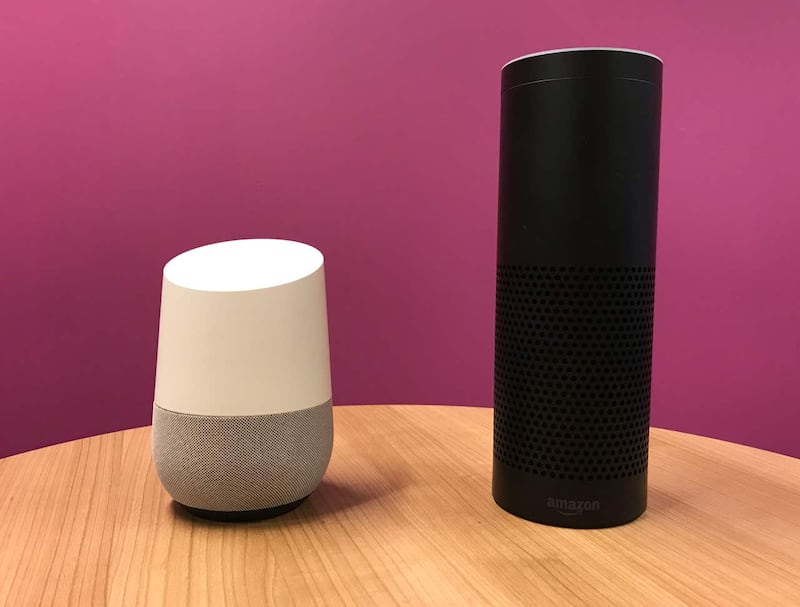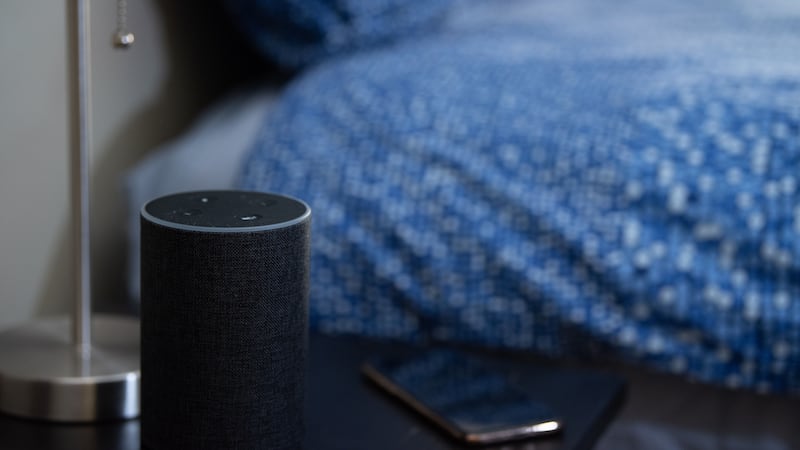Smart speakers like the Amazon Echo could one day be used to detect signs of cardiac arrest, scientists believe.
People suffering with sudden cardiac arrest initially struggle with irregular gasps of breath, known as agonal breathing, and may be unable to seek help if alone at home during this time-critical moment.
Researchers at the University of Washington have come up with an early test AI-powered tool which could be used on smart speakers and even smartphones to listen out for the unique breathing sounds associated with cardiac arrest, and then alert emergency services.
“This kind of breathing happens when a patient experiences really low oxygen levels,” said Dr Jacob Sunshine, assistant professor of anaesthesiology and pain medicine.
“It’s sort of a guttural gasping noise, and its uniqueness makes it a good audio biomarker to use to identify if someone is experiencing a cardiac arrest.”
The proof-of-concept was put to the test using real agonal breathing recordings captured by bystanders in emergency calls received by Seattle’s Emergency Medical Services.
Between 2009 and 2017, 2.5-second audio extracts were taken from 162 calls and captured on different smart devices, including Amazon Alexa, an iPhone 5S and a Samsung Galaxy S4, as well as machine learning techniques to bring the database of clips up to 7,316.
Sounds were also played back from different distances with added background noises such as a dog or cars honking, to ensure the tool can hear breathing in everyday environments around the home.
Some 83 hours of normal sleeping noises, as well as snoring and obstructive sleep apnea, were added in to provide negative data to avoid confusion with real cases of cardiac arrest.
The system could detect agonal breathing 97% of the time when the smart device was placed up to six metres away from a speaker generating the sounds, researchers explained in npj Digital Medicine.
“A lot of people have smart speakers in their homes, and these devices have amazing capabilities that we can take advantage of,” said co-corresponding author Shyam Gollakota, associate professor at the University of Washington.

“We envision a contactless system that works by continuously and passively monitoring the bedroom for an agonal breathing event, and alerts anyone nearby to come provide CPR.
“This could run locally on the processors contained in the Alexa.
“It’s running in real time, so you don’t need to store anything or send anything to the cloud.”
However, further work is needed on the algorithm to avoid unnecessary alerts to emergency services, after testing resulted in a small percentage of false positives.
“We don’t want to alert either emergency services or loved ones unnecessarily, so it’s important that we reduce our false positive rate,” added Justin Chan, first author and doctoral student.








